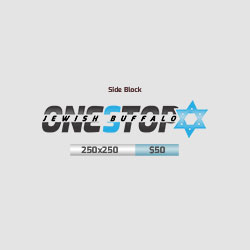The Wrestling Match
One of the most enigmatic stories in the Torah tells of the time Jacob wrestled with a mysterious character, whom our Sages have identified as Esau’s guardian angel. The angel intended to destroy Jacob because of the blessings he had appropriated from Esau.
When dawn broke the next day, after a long night of wrestling, with the angel unable to triumph, Jacob prevented the angel’s return to his celestial dwelling. The Torah then states, “When he saw that he could not overcome him… then he said: Let me go, for dawn has broken.” Jacob responded, “I will not let you go unless you bless me.” The angel proceeded to name him Israel to suggest, as Rashi says, that he justifiably received the blessings of the first born from his father Isaac, the root cause of Esau’s bitter contention with him.
Several questions come to mind:
First, what is the symbolic meaning of wrestling all night until dawn?
Second, why does the Torah say “when he [the angel] saw that he could not overcome him [Jacob]?” Why not simply state “When he could not overcome him.”
The following exposition is based on a 20th Century work, Gevras Shimshon.
The Dawn Paradox
Dawn is a time of the day that, in some instances, is still night because the sky is still quite dark at dawn. Yet, dawn represents the beginning of a new day in matters of Halacha.
The dispute between Jacob and Esau, channeled by Esau’s angel, concerned Jacob’s right to enjoy his father’s material blessings. In Esau’s mind, the birthright that he sold to Jacob related exclusively to his right to the spiritual legacy of Abraham and Isaac, not to their material wealth. And, he believed that the blessings Jacob received from his father were only to be reaped in the world-to-come.
In the Midrash, our Sages compare the nations of the world, who are represented by Esau, to the majestic and colossal Sun that shines brightly and is referred to in the Torah as “the great luminary.” The tiny Jewish nation, represented by Jacob, however, is likened to the Moon, which is referred to in the Torah as the “small luminary.” Jacob, likewise, is characterized as the “small one” (Amos 7:5).
Our Sages point out that one of the salient differences between our Sun and the Moon, besides their obviously mismatched sizes, is that while the Sun shines only during the day, the Moon can also be seen shining at dawn which, in some respects, is considered under Jewish law to be daytime.
The Midrash adds that this distinction was given to the Moon as compensation for its diminished size.
Naturally enough, this physical distinction has a symbolic meaning too.
Esau and Jacob; The Sun and the Moon; This World and the World-to-Come
According to the Midrash, the Sun is a metaphor for this world and the Moon a metaphor for the world-to-come. This is consistent with the above citation from the Midrash that Esau is likened to the Sun and Jacob “the small one” is compared to the Moon.
Esau’s claim, therefore, was that in this world, when the Sun is shining, there is no room for Jacob, who is associated with the Moon and the world-to-come. Esau’s identification with the Sun totally eclipsed Jacob’s relationship with the Moon.
Jacob’s fortune, on the other hand, was reserved for the future when Esau’s fortune would no longer shine, when the Moon will come to dominate the sky.
Championing Dawn
Jacob did not embrace this neat division of the two worlds reserved for Esau and himself. Jacob was convinced that the material blessings would devolve on him even during the day, i.e., in the present day and age. He believed that he was entitled to enjoy the best of both worlds.
While Jacob’s primary reward and prosperity will come in the future, he still felt entitled to lay claim to his material blessings in the present. Jacob’s claim was based on his metaphoric association with the Moon. The Moon is mainly intended for the night, but it also shines between dawn and sunrise. As stated above, Jewish law considers dawn to be the beginning of a new day despite the absence of sunlight. In times of difficulty, one may begin the Shacharis-morning prayer after dawn but before sunrise despite the fact that it is still quite dark.
Jacob, therefore, championed the period of dawn because it is that period which demonstrates the righteousness of his claim to both worlds. Whereas the Sun’s influence is reserved for the day, the Moon relates to both night and day. If Esau was entitled to material prosperity in this world, Jacob was entitled to prosperity in both worlds.
Jacob’s Relationship With Material Blessings
The rationale for Jacob’s quest for material wealth was qualitatively different from Esau’s obsession with it.
Jacob’s unique approach to material blessings is signified by the period of dawn, which, as stated, is a composite of darkness and day.
The fact that Jewish law considers dawn legally to be daytime, notwithstanding the darkness that prevails then, suggests that the Moon [read: Jacob] is truly not about this world [read: the Sun] even when he is in this world. Jacob’s entire attachment to wealth in the present world was to enable him to make this world a dwelling place for G-d, which serves as a “ticket” to the next world.
The Wrestling Match: An Ideological Debate
This was the crux of the ideological wrestling match between Jacob and Esau’s angel. The angel wanted to wrestle all night to convince Jacob that by the time day arrived he would no longer have any power; he would be vanquished. This would ensure that Esau would rule the “day” [read: this world] and righteously claim all of its perks, exclusively. The angel, initially, did not appreciate that dawn is part of the day.
Jacob, on the other hand, knew that dawn was indeed the beginning of a new day despite the darkness and that he would still be in control.
This, then, is a deeper understanding of the Torah’s description of their wrestling match:
Their wrestling all night alludes to their ideological differences as to whether Jacob was justified in his appropriation of the material blessings. The angel argued that the Moon, the symbol of Jacob, only rules at night, i,e., in the next world, which was Jacob’s only rightful domain. Jacob contested that idea and asserted that he was the rightful heir to the material blessings in this world as well.
Dawned at Dawn
To buttress Jacob’s contention, the Torah continues:
“When dawn arrived and he saw that he could not prevail.” The angel saw the moon still shining at dawn, and it suddenly dawned on him (pun intended) that it the day had come. The Hebrew word for dawn, alos shachar, actually means “the ascendance of morning.” As Rashi observes, the angel was pleading that he must be allowed to leave to recite the song associated with the morning.
When the angel conceded that dawn truly was day and that the Moon (Jacob) was still shining, Jacob asked him to confirm the blessings he had received from Isaac, with which request the angel promptly complied.
The lesson here is that when G-d blesses us with material blessings, we must use them as vehicles to make this world transition into the Messianic Age.
Moreover, the symbolism of the Moon shining during the day is that, even before the Final Redemption, we must direct our thoughts to the world-to-come by living and behaving as if we were already living in that perfect world.


